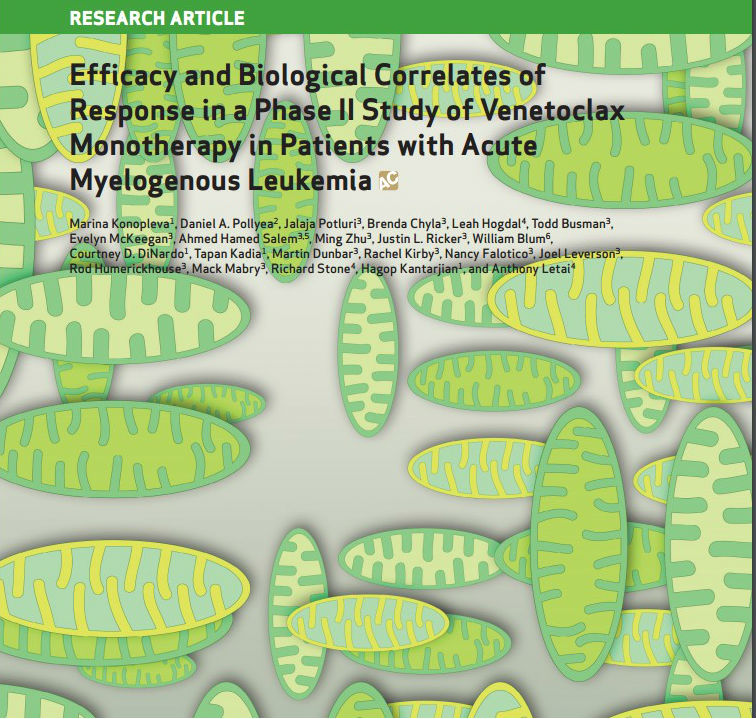In April we featured a Q&A in this blog with LLS-funded researcher Anthony Letai, MD, PhD, of Dana-Farber Cancer Institute, who discussed in his work leading to clinical trials of a drug called venetoclax (Venclexta ®) for acute myeloid leukemia (AML).
The drug was FDA approved in April for a high-risk form of chronic lymphocytic leukemia (CLL). AML is a deadly blood cancer that has seen no change in the standard of care in 40 years. More than 20,000 people a year are diagnosed with AML, and 10,000 will die.

Venetoclax is now one of many investigational drugs in the pipeline being tested to target one multiple genetic mutations that drive AML. Letai, an associate professor in medicine, has been the recipient of several LLS grants in recent years.
This week, results from a Phase II study led by Letai investigating venetoclax as a single agent in AML patients, appeared in Cancer Discovery, a prestigious peer-reviewed journal put out by American Association of Clinical Research (AACR). The study demonstrated an overall response rate of 19% with a tolerable safety profile for patients with relapsed/refractory (AML) or those with AML who were unfit for intensive chemotherapy.
LLS is credited as a supporter of the work in the journal.
Venetoclax works by targeting the BCL-2 survival protein present in AML and other blood cancers. Inhibiting the BCL-2 protein causes the cancer cells to self-destruct in a process known as apoptosis.
While this study was looking at venetoclax as a single agent, more recent studies are testing the drug in combination with other agents to achieve more frequent, durable responses. Preliminary results of one of these trials were made public at the American Society for Hematology annual meeting last December with more than 70 percent of the patients experiencing remission of their leukemia.
You can learn more about the clinical trial featured in Cancer Discovery here.

